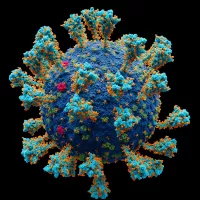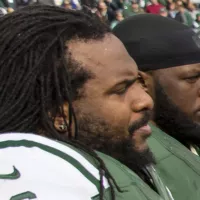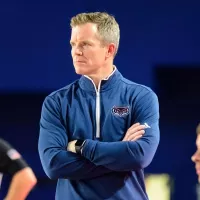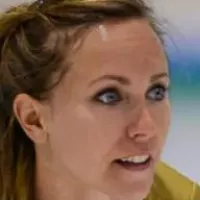1900: Enslavement in Senegambia
By 1900, close to one-third of the population in the Senegambia region had been enslaved between 1300 and 1900, typically as a result of being taken captive in warfare.
1914: Yoro Dyao's Chiefdom
In 1914, Yoro Dyao served as chief of Wâlo (Ouâlo), set over by Louis Faidherbe since 1861.
1915: Senegalese Under Australian Command
In 1915, over 300 Senegalese came under Australian command before the taking of Damascus.
September 1940: Battle of Dakar
In September 1940, the Allies unsuccessfully attempted to capture Dakar and overthrow the pro-German Vichy French administration.
1950: Infant Mortality Rate
In 1950, infant mortality in Senegal was 157 per 1,000 live births.
1953: First Bahá'is Arrive in Senegal
In 1953, the first Bahá'is arrived in the territory of French West Africa that would become Senegal.
November 1958: Senegal Becomes Autonomous Republic
In November 1958, Senegal became an autonomous republic within the French Community.
January 1959: Merger with French Sudan
In January 1959, Senegal and the French Sudan merged to form the Mali Federation.
April 1960: Transfer of Power Agreement with France
On April 4, 1960, Senegal signed a transfer of power agreement with France.
June 1960: Full Independence
On June 20, 1960, the Mali Federation became fully independent.
August 1960: Senghor Elected President
In August 1960, Léopold Sédar Senghor was elected as Senegal's first president.
August 1960: Federation Breakup
In August 1960, the Mali Federation broke up, and Senegal and French Sudan each proclaimed independence.
1960: French ratified as the official language of Senegal
French was ratified as the official language of Senegal in 1960, upon the country's independence.
1960: Senegal's Foundation
In 1960, Senegal was founded and recognized as one of the most stable countries on the African continent.
1961: Portuguese Introduced in Secondary Education
In 1961, Portuguese was introduced in Senegal's secondary education in Dakar by President Léopold Sédar Senghor.
December 1962: Attempted Coup by Dia
In December 1962, political rivalry between Senghor and Prime Minister Mamadou Dia led to an attempted coup by Dia.
1963: UN Petition Regarding Border Violations
In 1963, Senegal petitioned the United Nations Security Council regarding the continued violating of Senegal's borders by the Portuguese military.
1963: Peace Corps Volunteers in Senegal
Since 1963, over 4,000 Peace Corps Volunteers have served in Senegal.
1965: One-Party Rule
From 1965, the Senegalese Progressive Union was the only legally permitted party.
1965: UN Petition Regarding Border Violations
In 1965, Senegal petitioned the United Nations Security Council regarding the continued violating of Senegal's borders by the Portuguese military.
1966: First Bahá'í Local Spiritual Assembly
In 1966, the first Bahá'í Local Spiritual Assembly of Senegal was elected in Dakar.
1968: World Constituent Assembly Convened
In 1968, a World Constituent Assembly convened in Senegal to draft and adopt the Constitution for the Federation of Earth.
1969: UN Petition Regarding Border Violations
In 1969, Senegal petitioned the United Nations Security Council regarding the continued violating of Senegal's borders by the Portuguese military, in response to shelling by Portuguese artillery.
1971: UN Petition Regarding Border Violations
In 1971, Senegal petitioned the United Nations Security Council regarding the continued violating of Senegal's borders by the Portuguese military.
1972: UN Petition Regarding Border Violations
In 1972, Senegal petitioned the United Nations Security Council regarding the continued violating of Senegal's borders by the Portuguese military.
1975: Opposition Parties Allowed
In 1975, Senghor allowed the formation of two opposition parties.
1975: First National Spiritual Assembly of Senegal
In 1975, the Bahá'í community elected the first National Spiritual Assembly of Senegal.
1976: Opposition Parties Begin
In 1976, a Marxist party and a liberal party began operation.
1979: Paris-Dakar Rally Hosted in Senegal
In 1979, Senegal began hosting the Paris-Dakar Rally, an off-road endurance motorsport race from Paris, France, to Dakar, Senegal.
1980: Senghor's Retirement
In 1980, Senghor decided to retire from politics.
1981: Diouf Becomes President
In 1981, Abdou Diouf became the president of Senegal.
February 1982: Senegambia Confederation
In February 1982, Senegal joined with The Gambia to form the Senegambia Confederation.
1983: Election Run
In 1983, Mamadou Dia ran against Abdou Diouf, but lost.
1986: Fertility Rate
The fertility rate was 6.4 in Senegal in 1986.
1988: UN Security Council Member
In 1988, Senegal was a member of the UN Security Council.
1989: Mauritanian Refugees
In 1989, an estimated 40,000 Mauritanians were expelled from their home country, with 35,000 remaining in Senegal.
1989: Dissolution of Senegambia Confederation
In 1989, the Senegambia Confederation was dissolved.
1996: Full Internet Connectivity
In 1996, Senegal achieved full Internet connectivity, leading to a boom in information technology services.
1997: UN Commission on Human Rights
In 1997, Senegal was elected to the UN Commission on Human Rights.
1997: Fertility Rate
The fertility rate was 5.7 in Senegal in 1997.
1999: Wade Defeats Diouf
In 1999, Abdoulaye Wade defeated Diouf in the presidential election.
1999: Establishment of the Senate
In 1999, Senegal established a Senate.
2000: End of Diouf's Presidency
In 2000, Abdou Diouf's presidency ended.
2000: Peacekeeping Mission
In 2000, Senegal sent a battalion to the Democratic Republic of Congo to participate in MONUC.
January 2001: Constitution Guaranteeing Education
In January 2001, Articles 21 and 22 of the Constitution guaranteed access to education for all children in Senegal.
2001: Presidential term
From 2001 to 2008, the term of the president was five years.
2001: Senate Removed
In 2001, Senegal removed the Senate.
2003: African Charter of Human and People's Rights
Senegal signed the African Charter of Human and People's Rights during the 2003 African Union Summit.
December 2004: Peace Treaty Announcement
On December 30, 2004, President Wade announced he would sign a peace treaty with the separatist group in Casamance.
2004: Health Expenditure
In 2004, Public expenditure on health in Senegal was at 2.4 percent of the GDP, whereas private expenditure was at 3.5 percent. Health expenditure was at US$72 (PPP) per capita.
2005: Senegalese Bahá'ís Population
According to a 2005 report, the population of Senegalese Bahá'ís was detailed at 22,000.
2005: Fertility Rate
In 2005, the fertility rate ranged 5 to 5.3.
2005: Net Primary Enrollment Rate
In 2005, the net primary enrollment rate in Senegal was 69 percent.
2005: Casamance Peace Talks
In 2005, there was a round of peace talks regarding Casamance separatists, but the results have not yet yielded a resolution.
2006: Gum Arabic Exports Soar
In 2006, Senegal's gum arabic exports soared to $280 million, becoming the leading agricultural export.
2007: Refugee and asylum seeker population
According to the World Refugee Survey 2008, in 2007, Senegal had a refugee and asylum seeker population numbering approximately 23,800.
2007: Senate Re-established
In 2007, Senegal re-established the Senate.
2007: Last Paris-Dakar Rally Held in Senegal
In 2007, the last Paris-Dakar Rally was held in Senegal before being canceled the following year.
2008: Presidential term
From 2008 to 2016, the term of the president was seven years.
2008: Ibrahim Index Ranking
In 2008, Senegal finished in 12th position on the Ibrahim Index of African Governance.
2008: 2008 Dakar Rally Canceled
The 2008 Dakar Rally, which was to be hosted in Senegal, was canceled a day before the event due to security concerns in Mauritania.
2009: Freedom House Downgrade
In 2009, Freedom House downgraded Senegal's status from "Free" to "Partially Free".
2010: African Renaissance Monument Built
In 2010, the African Renaissance Monument was built in Dakar, becoming the tallest statue in Africa.
February 2011: Severed Ties with Iran
On February 22, 2011, Senegal severed diplomatic ties with Iran.
June 2011: Opposition Movements Emerge
In June 2011, several youth opposition movements emerged.
March 2012: Election of the Fourth President
In March 2012, Macky Sall was elected as the fourth president.
March 2012: Macky Sall Elected President
In March 2012, Macky Sall was elected as the new President of Senegal.
September 2012: Senate Abolished
On September 19, 2012, lawmakers voted to do away with the Senate.
December 2012: Talks with Rebels in Rome
In December 2012, President Macky Sall held talks with rebels in Rome.
2012: Pew Study on Muslims in Senegal
According to a 2012 Pew demographic study, 55% of Muslims in Senegal are Sunni of the Maliki madhhab with Sufi influences.
2012: Decline in Ibrahim Index Rank
As of 2012, Senegal's Ibrahim Index rank declined to 16th of 52 African countries.
2012: Election won by Macky Sall
In 2012, Macky Sall won the election, and Wade conceded it to Sall.
2012: Senate Removed
In 2012, Senegal removed the Senate again.
2013: Female Genital Mutilation
According to a 2013 UNICEF report, 26% of women in Senegal have undergone female genital mutilation.
2013: Pew Research Center Survey on Homosexuality
In 2013, a Pew Research Center survey revealed that 96% of Senegalese believe homosexuality should not be accepted by society.
January 2014: Seizure of Russian Trawler
In January 2014, Senegalese authorities seized a Russian trawler, Oleg Naydenov, for illegal fishing near the maritime border with Guinea-Bissau.
2014: Recovery of Free Status
By 2014, Senegal had recovered its "Free" status.
2014: Senegal Reaches FIBA World Cup Playoffs
In 2014, the Senegalese men's basketball team outperformed all other African nations at the FIBA World Cup, reaching the playoffs for the first time.
2015: Military Intervention in Yemen
In 2015, Senegal participated in the Saudi Arabian-led military intervention in Yemen.
2015: UN Security Council Member
In 2015, Senegal was a member of the UN Security Council until 2016.
2016: UN Security Council Member
In 2015, Senegal was a member of the UN Security Council until 2016.
2016: Life Expectancy Estimate
In 2016, life expectancy at birth in Senegal was estimated to be 66.8 years.
2016: NBA Announces Elite's Academy in Senegal
In 2016, the NBA announced the launch of an Elite's Academy in Africa, located in Senegal.
2016: Presidential Term
In 2016, the president of Senegal was elected every five years.
August 2017: Ruling Party Victory
In August 2017, the ruling party won a landslide victory in the parliamentary election.
2018: Infant Mortality Rate
By 2018, infant mortality had declined to 32 per 1,000 live births in Senegal.
February 2019: Re-election of President Sall
In February 2019, Macky Sall was reelected as president.
2019: Ethnic Groups in Senegal
According to 2019 estimates, the major ethnic groups in Senegal include Wolof (39%), Fula (27.5%), and Serer (16%).
2019: President Sall Re-election
In 2019 president Macky Sall easily won re-election in the first round.
2019: Forest Landscape Integrity Index Ranking
In 2019, Senegal's Forest Landscape Integrity Index mean score was 7.11/10, ranking it 56th globally out of 172 countries.
2019: Africa Cup of Nations Runners-Up
In 2019, Senegal's national team were runners-up in the Africa Cup of Nations.
2019: Senegal Hosts 2019 FIBA Women's AfroBasket
When Senegal hosted the 2019 FIBA Women's AfroBasket, the Dakar Arena saw record attendance for basketball in Africa with 15,000 fans.
March 2020: COVID-19 Pandemic
In March 2020, the COVID-19 pandemic began in Senegal, leading to the imposition of a curfew.
April 2020: Energy Sector Capacity
As of April 2020, Senegal's energy sector has an installed capacity of 1431 megawatts (MW).
November 2020: Appointment of Aïssata Tall Sall
In November 2020, Aïssata Tall Sall took office as the Foreign Minister of Senegal.
2020: Largest export markets
As of 2020, Senegal's largest export markets are Mali (20.4%), Switzerland (12.2%), and India (8.3%).
March 2021: Mass Protests Begin
Since March 2021, Senegal has been rocked by a series of mass protests in response to the arrest of Ousmane Sonko.
June 2021: Launch of SunuCMU Website
In June 2021, Senegal's Agency for Universal Health launched sunucmu.com (SunuCMU), a website aimed at streamlining health care in the country.
July 2021: Increase in Coronavirus Cases
In July 2021, Senegal experienced a significant increase in cases of coronavirus disease.
2022: French Speakers
In 2022, it was estimated that speakers of French made up 26% of the Senegalese population.
2022: Senegal Wins Africa Cup of Nations
In 2022, the Senegalese national football team won the Africa Cup of Nations for the first time, defeating Egypt.
June 2023: Protests Turn Violent
In June 2023, the protests turned increasingly violent, resulting in 23 fatalities.
March 2024: Faye Wins Presidential Election
In March 2024, Bassirou Diomaye Faye won Senegal's presidential election, becoming the youngest president in Senegal's history.
March 2024: Election of the Fifth President
On March 25, 2024, Bassirou Diomaye Faye became the fifth democratically elected president of Senegal.
April 2024: Swearing in of President Bassirou Diomaye Faye
On April 2, 2024, Bassirou Diomaye Faye was sworn in as president.
November 2024: France to Withdraw Troops
In November 2024, Faye announced that France will withdraw its troops from Senegal and close its bases by the end of 2025.
2024: Invitation to the King of Morocco
In 2024, Bassirou Diomaye Faye invited the king of Morocco on his swearing ceremony.
2024: Global Peace Index
In 2024, Senegal ranked as the 84th most peaceful country in the world, according to the Global Peace Index.
2024: Democracy Ranking
In 2024, Senegal was ranked 68th in electoral democracy worldwide and 4th in Africa according to the V-Dem Democracy Indices.
2024: Global Innovation Index Ranking
Senegal was ranked 92nd in the Global Innovation Index in 2024.
2025: Troop withdrawal
In November 2024, Bassirou Diomaye Faye announced that France will withdraw its troops from Senegal and close its bases by the end of 2025.
2026: Senegal to Host Summer Youth Olympics
In 2026, Senegal will host the Summer Youth Olympics in Dakar, making it the first African country to host an Olympic event.
Mentioned in this timeline

Basketball is a team sport played on a rectangular court...
Sudan officially the Republic of the Sudan is a country...

Coronaviruses are a family of RNA viruses affecting mammals and...
India officially the Republic of India is a South Asian...
Morocco officially the Kingdom of Morocco is a North African...
Africa is the second-largest and second-most populous continent comprising of...
Trending

41 minutes ago Salsa Legend Willie Colón Dies at 75: Bronx-Raised Musical Pioneer
2 hours ago Juventus faces crisis after Como's lesson at Stadium; Roma may extend lead.

3 hours ago Elina Svitolina defeats Coco Gauff, faces Jessica Pegula in Dubai final.

3 hours ago Dusty May on Naismith Watch List: Coach of the Year Potential?
3 hours ago James Milner Breaks Premier League Appearance Record: Klopp Praises His Impact

4 hours ago Team Homan’s Olympic Curling Journey: Semifinal Setbacks and Future Games
Popular

Jesse Jackson is an American civil rights activist politician and...
Randall Adam Fine is an American politician a Republican who...

Barack Obama the th U S President - was the...

Ken Paxton is an American politician and lawyer serving as...

Bernie Sanders is a prominent American politician currently serving as...

Michael Joseph Jackson the King of Pop was a highly...